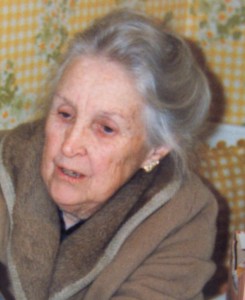When a baby is overdue, waiting can be torture. And I’m just the grandma!
Linnea and her husband Adam are excitedly anticipating the arrival of Baby #2 any minute. His nursery is painted and the newborn car seat is ready to be put back in service. My phone is charged and ready in my pocket. We are all standing by, giddy with anticipation and ready with a heap of love. The only one who has no idea what’s about to happen is their daughter Skylar, 18 months and blissfully unaware.
We all refer to Skylar as our miracle baby. Linnea and Adam knew ahead of time they might have trouble becoming parents and began researching the matter a year after they were married. As test results came in, the news wasn’t good. Doctors said there was “no way” a baby could be conceived without the help of modern medicine, so Linnea and Adam considered their options carefully, praying and sometimes fasting as they went along.
In the end, they decided to try IVF, an expensive, painful, emotionally draining process accompanied by weeks of waiting. Their IVF story can be found on Linnea’s blog, www.KissYourMiracle.com
I’ll never forget the sad day Linnea called me from their home in Florida, her voice so distorted by weeping I couldn’t even identify it as my daughter’s. The IVF procedure had failed.
Picking up the pieces and moving forward, Linnea and Adam decided to start over, saving and planning for a second try at IVF. They hoped to accomplish it within a year. But just as they were ready, both of them felt strongly God wanted them to wait even longer, a difficult word to receive but one they obeyed. Now we know, of course, that the Lord was looking at Skylar. Had they gone ahead with the second IVF, they would have unknowingly set aside God’s baby miracle.
Seven months passed, and Linnea and Adam were still waiting for God’s directive to do a second IVF, but Linnea wasn’t feeling very well. Exhausted by dinner each evening, she was queasy much of the time and wondered what could be wrong.
Then one afternoon Adam suggested the impossible by buying a home pregnancy test. Linnea was too nervous to watch the stick develop and stayed one room away. After a few interminable moments of waiting, Adam walked in, stunned by the result. “It’s positive!”
“Well then the test must be defective,” Linnea concluded. “Let’s go get another one, a different brand.”
That one was positive, too. So was the third test, performed in their doctor’s office two days later. And finally they believed it. A baby that no one could explain was on its way. It was God’s miracle, and their waiting was over.
Skylar was not an “easy” baby. Linnea’s word was “intense”, and the intensity has never lessened. But oh the joy she’s brought to all of us! Nelson lovingly calls her the family maniac, but without Skylar, all of us would have missed out on bushels of laughter and mind-flooding gratitude to God.
In the fall of 2007, when Linnea and Adam anticipated never having children, their mouths would have dropped open and eyes grown wide if someone had said, “Two years from now you’ll be delivering your second baby!”
But this is often how God works. We call out to him in desperation and frustration. We analyze our situation and see it’s not humanly possible for things to work out. We despair and grieve, sometimes railing at God in anger. We cry and say, “It isn’t fair!”
The Lord smiles at three things:
- when we say, “I give up.”
- when the experts say, “There’s no way.”
- when his obedient children say, “Yes, we’ll wait.”
It’s at those times he positions himself to unleash a surprise beyond our wildest imaginations. For our family, Skylar is that wild surprise, and Baby #2 is wild-surprise-maximus!
There is no other explanation for these wonders except to say, it’s all about God. And whatever he has planned is always worth the wait!
“Who is like you among the gods, O Lord—glorious in holiness, awesome in splendor, performing great wonders?” (Exodus 15:11)




